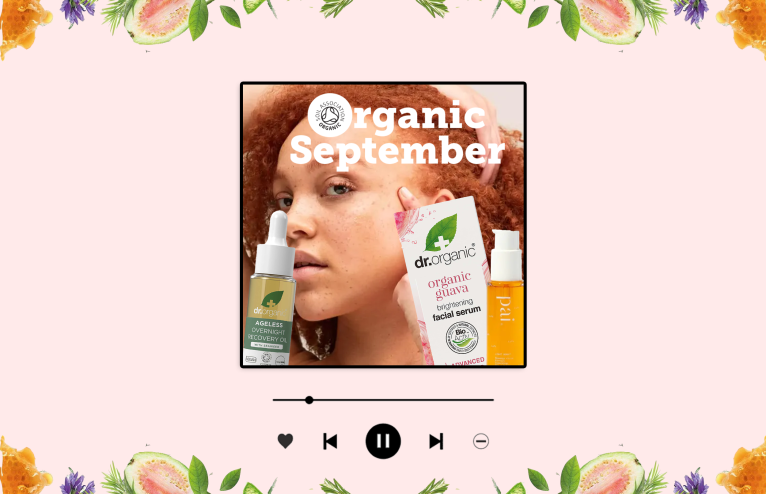The festive season offers many chances for positivity and joyfulness, but the colder weather can also bring periods of low mood and winter burnout, including seasonal affective disorder (SAD).
To help you identify it, and to tackle the symptoms proactively if it does rear its head, we spoke to the experts to discover why periods of low mood, as well as sleep disruptions and digestive issues, are common at this time of year.
Including wellbeing advice and product solutions to aid you through the winter feeling happier and healthier, this is our guide to tackling winter burnout and seasonal affective disorder.
What is SAD?
SAD or seasonal affective disorder is a condition used to describe a downward shift in mood during the winter season, which can range from mild symptoms to the potentially depression-triggering. The exact cause is not fully understood, but it has been linked to a reduction in exposure to sunlight, which may cause a fall in our natural levels of serotonin – the ‘happy hormone’ that influences our mood, sleep and digestion – as well as deficiencies in key vitamins and minerals, including Vitamin D.
If you’ve ever felt a bit lower than normal while travelling to and from work in the dark, or have a heightened reluctance to get out of bed in the morning, those are examples of mild SAD side effects. Team that with the busyness of the winter season, especially due to Christmas in the Northern hemisphere, and it is a recipe for winter burnout, which can make you feel lethargic and overwhelmed. At its worst, it can also cause a significant decrease in your mental health.
Recognising these SAD feelings within yourself is not unusual. Google searches for ‘seasonal depression’ are up 184 per cent over the past few months and, according to the NHS, SAD affects an estimated two million people in the UK. Adele even recently mentioned her experiences with the ‘winter blues’ as a reason why she is not in a hurry to move back to England.
What are the symptoms of the winter blues?
Symptoms of SAD commonly include low mood, tiredness, fatigue (even if you generally sleep well), irritability, anxiety, and cravings for ‘comfort foods’ that may lead to winter weight gain.
According to the skincare expert for Justmylook, Hayley Walker, SAD can impact your skin too: “The lack of Vitamin D during the colder, darker months can trigger breakouts and other skin conditions, such as rosacea. At the same time, cortisol (the stress hormone) can disrupt the skin’s natural barrier while delaying healing and affecting the immune system, resulting in dry skin and hypersensitivity. Depression also involves a chemical imbalance in the brain, which can prevent your body from repairing itself, wreaking havoc on your skin.”
If you are really struggling with consistent low mood or anxiety, it is always best to speak to your GP who can offer tailored advice. But, for milder symptoms and to help tackle the side effects on your skin, our expert tips below can help you this winter.
How to overcome Seasonal Affective Disorder: the expert guide
1. Increase your Vitamin D intake
“Less sunlight exposure and time spent outdoors in the winter months can result in a lack of vitamin D, a primary cause of SAD, as vitamin deficiency is associated with depressive symptoms,” a spokesperson for the beauty and wellness marketplace Fresha explains. “Vitamin D supplements are great to take during the winter months, though if in doubt, consult your GP. Other natural ways to increase vitamin D are by incorporating mushrooms, egg yolks, and yoghurt into your meals, as these are naturally high in the vitamin. However, light exposure outdoors is the quickest way to increase vitamin D levels. Try keeping curtains open and allow natural light and UV rays to penetrate windows or increase your time outside.”
2. Get a light therapy lamp
Light therapy can be incredibly helpful for anyone suffering with SAD, as light lamps can stimulate the benefits of natural sunlight, even when the weather is especially dark and dreary. Such lamps – which look very similar to light-up mirrors – can be set up easily on your desk, allowing you to bask in a simulation of summer sunlight (without harmful UV rays), helping lift your mood and energy levels. There are even some reports they can help with brain fog too. The Lumie Vitamin Light is our top recommendation.
3. Don’t forget your supplements
“With winter’s long, cold nights, it is easy to feel a lack of energy throughout the day and many of us turn to quick fixes like coffee and energy drinks, but the boost of energy they provide is short-lived,” says the founder of Vegetology, Chris Smith. “Although no vitamin is a complete cure for feelings of low energy and mood, it has been shown that a lack in certain vitamins can cause these feelings to worsen, so, it is incredibly important to make sure we are looking after our bodies, especially at this time of year.”
In terms of key supplements to look for, Smith recommends magnesium and Vitamin B for fighting fatigue (the latter can also boost energy, making it a crafty hangover cure over the festive period); vitamin C to boost your immunity against winter colds; and Omega 3 for supporting cognitive function and general positivity all year long.
4. Shake up your winter diet
Although the colder months tend to leave you craving carbohydrate-heavy comfort foods, if you struggle with low mood at this time of year, it’s never more important to ensure you eat a balanced diet (don’t worry you can still have a carby indulgence within that!) “When experiencing SAD, it can be beneficial to consume foods high in the amino acid Tryptophan,” explain the team at Fresha. “Studies have suggested that there is a direct link between this amino acid and the production of serotonin, the hormone related to happiness, memory, sexual desire and sleep.” Luckily, a common Tryptophan-rich food is one that you may already be planning to have on your Christmas table – turkey! Lean meats such as salmon and chicken also contain it and, as for vegetarian and vegan sources, pumpkin seeds, tofu (and other soya-based foods) and spinach are good examples.
5. Focus on a nourishing skincare routine
According to Walker, turning your skincare into a comforting winter nighttime ritual is incredibly easy, by ensuring you use products that lock in moisture and soothe sensitised skin. Look for ingredients such as aloe vera, glycerin, hyaluronic acid, and niacinamide. Some of Walker’s favourite products that utilise them include Dr. Organic Calendula Cream for dry and irritated skin, Revolution Skincare 2% Salicylic Acid & 5% Niacinamide Serum for stress-related breakouts and Revolution Skincare Hyaluronic Acid Overnight Hydrating Mask for a indulgent, pampering experience.
6. Get moving (outside)
When its cold and dark outside, physical exercise can feel like such a struggle – especially if you are feeling down already. However, not only is exercise so important for your health in general, it can also improve SAD symptoms by boosting your endorphins. Vigorous exercise such as boxing and HIIT can give you the biggest dose of the neurotransmitter dopamine (a happiness hormone), but that doesn’t mean you have to drag yourself to a crowded, intimidating gym. Instead, embrace the cosy cardio trend, which can boost your mood and your workout results.
Also, “studies have found that strength training releases a significant amount of dopamine in the brain, which helps elevate mood and improve overall mental health,” says the personal trainer and wellness coach Rachael Sacerdoti. “Incorporating weight lifting or bodyweight exercises into your routine can provide a sense of empowerment and accomplishment, boosting self-esteem and helping to alleviate SAD symptoms.” Even a fast-paced walk to see the Christmas lights in your town or to get a festive hot chocolate can get you out of the house and moving – just the ticket for tackling the winter blues.
7. Incorporate aromatherapy into your routine
If you have ever smelt a fragrance and been immediately transported back to a memory or certain emotion, you will know the effect (both positively and negatively) that scent can have on your mood. Aromatherapy is about harnessing that, by using essential oils to promote feelings of wellbeing. The easiest way to incorporate it into your winter routine is with the help of an aromatherapy diffuser, which can build a mood-boosting atmosphere without you having to lift a finger.
“Lemon or peppermint essential oils are great for the morning and can create an uplifting atmosphere,” recommend the team at Fresha. “Try lavender essential oils if you are having trouble sleeping, as this can help increase melatonin production, while other essential oils such as ylang-ylang, orange and clary sage help decrease anxiety and can be used at any time of day.”
8. Press pause not stop
Sometimes when life gets hectic, trying to tackle anything, including feelings of low mood, can feel like just another thing to add to your ‘to do list’ – especially token ‘self-care’. But, research suggests that living a life of extremes – aka intense busyness, followed by simply crashing – can make feelings of burnout and overwhelm worse. Instead, firstly acknowledge that seeing your GP may be a more proactive way to tackle severe SAD (there’s no shame in it), and when you do want to do activities to boost wellbeing, make it something you already enjoy, just do it at a slightly slower pace than normal.
Perhaps that is taking 10 minutes during your lunchbreak to write in a journal; adding an indulgent body scrub to your shower if a long bath doesn’t soothe your busy mind; or taking the time to buy a new hard-to-kill house plant you love. Chrysanthemums, Monstera plants and Spider plants, for example, are great to keep in bedrooms to remove indoor pollutants, as clean, fresh air helps raise oxygen levels in your brain, boosting serotonin levels.
The products to help with Seasonal Affective Disorder
We may earn a commission if you buy something from any affiliate links on our site.
Lead image credit: 7 For All Mankind




























Any Questions or Tips to add?